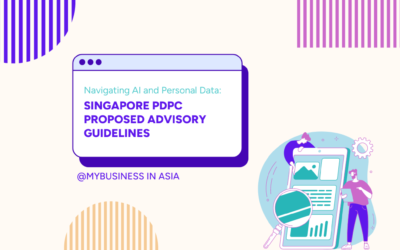
Many business owners seek opportunities in Singapore, as the country has established itself as a leading financial center in Asia by offering a stable business environment and a leading ease of doing business. However, it is inevitable that a handful of undesirable businesses such as money launders and unusual business structures to conceal ultimate beneficial owners, find their way here into the financial hub. In that regard, important KYC (Know Your Customer) regulations apply in Singapore to open new companies and receive corporate services.
Enhanced Regulatory Framework for Corporate Service Providers
The Accounting and Corporate Regulatory Authority (“ACRA”) which governs Corporate Service Providers (“CSPs”), public accountants and companies in Singapore, enhances professional standards to be aligned with recommendations by the global Financial Action Task Force (“FATF”) that aims to safeguard against money laundering and terrorism financing on an ongoing basis. This means that the Service Providers are responsible to apply due diligence requirements and KYC onto their own clients.
CSPs are firms that provide corporate services to other businesses and file transactions on their behalf with ACRA, of which typically include:
- Formation of local companies and registration of foreign companies in Singapore.
- Provision of Registered Address service.
- Acting as company secretary.
- Provision of local resident director.
- Filing of annual returns with ACRA.
- Filing of changes to corporate structure for the client company such as changes in directors, shareholders, share capital, etc.
What are the KYC documents for your Company?
ACRA has released a set of Enhanced Regulatory Framework to allow CSPs to reduce compliance risks by setting out specific requirements for CSPs. Should you be engaging a CSP to provide the above corporate services for your business, your CSP may minimally request for the following to ensure verify and identify your identity:
- Identification proof (Valid IDs, Residence, Date of Birth, Nationality of shareholders and members of the beneficial owners)
- Copy of the company’s Business profile
- Copy of the company’s Memorandum and Articles of Association
What additional information does a Service Provider usually require?
Your CSP will also consider your background, business activities, source of income, country of origin and residence, nature and purpose of your accounts and persons acting on your behalf and assess on a comprehensive range of factors to determine your entity’s risk level. They may review the risk level of its clients whenever necessary. It is expected of them to conduct regular inspections based on risk assessment procedures.
The benefits of high ethic and met compliance requirements with your Corporate Service Provider
While these new measures may seem tedious and time consuming, regulatory compliance is necessary to uphold Singapore’s business environment. It is also important to note that many countries are taking similar steps to prevent money laundering and financing of terrorist activities. Engaging in a corporate service provider with a team of qualified professionals would ensure your firm’s transparency and accountability.
Going through the KYC Regulations exercise in Singapore is also beneficial for companies willing to safeguard themselves from reputational risks. Completing the KYC is a step forward the complete compliance in regard of local regulations and international standards.
If you appreciate our content, you will also appreciate our other articles:
- Understand how the ONE Pass and how to apply for this special Pass in Singapore.
- Apply for an EP in Singapore and understand the new COMPASS framework.
- Tax Residency in Singapore: If I work overseas do I pay taxes?



